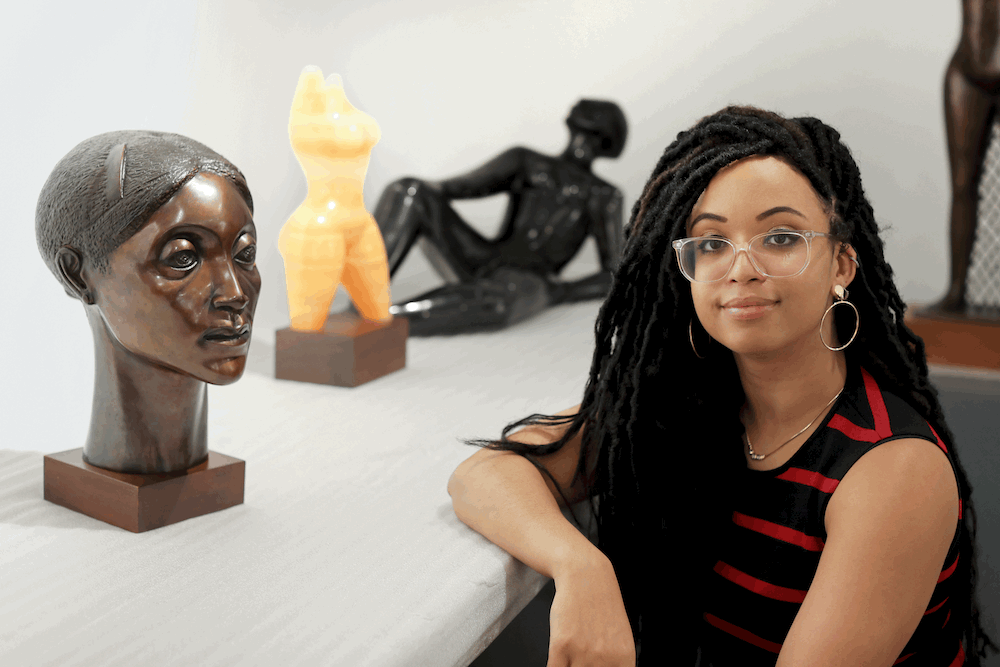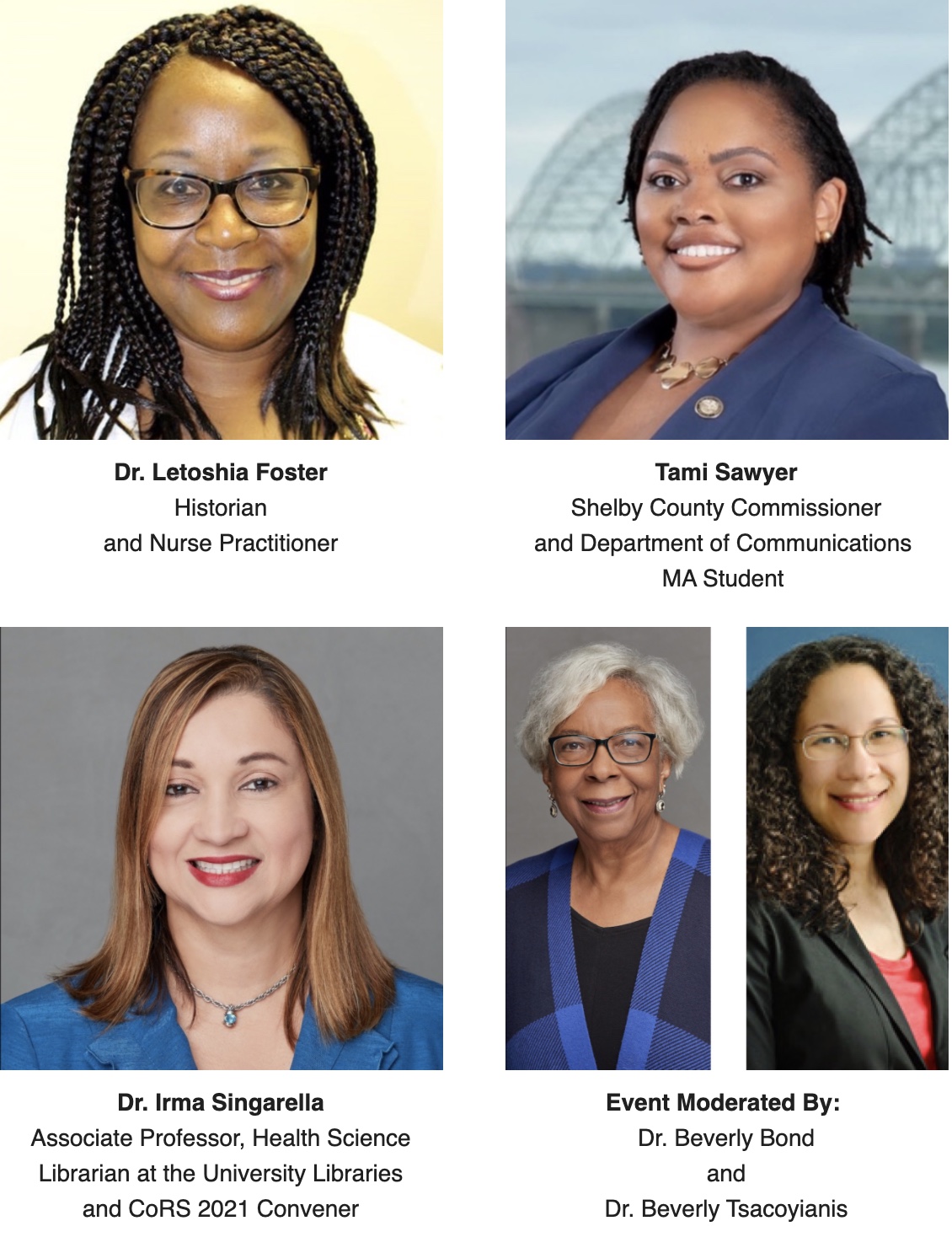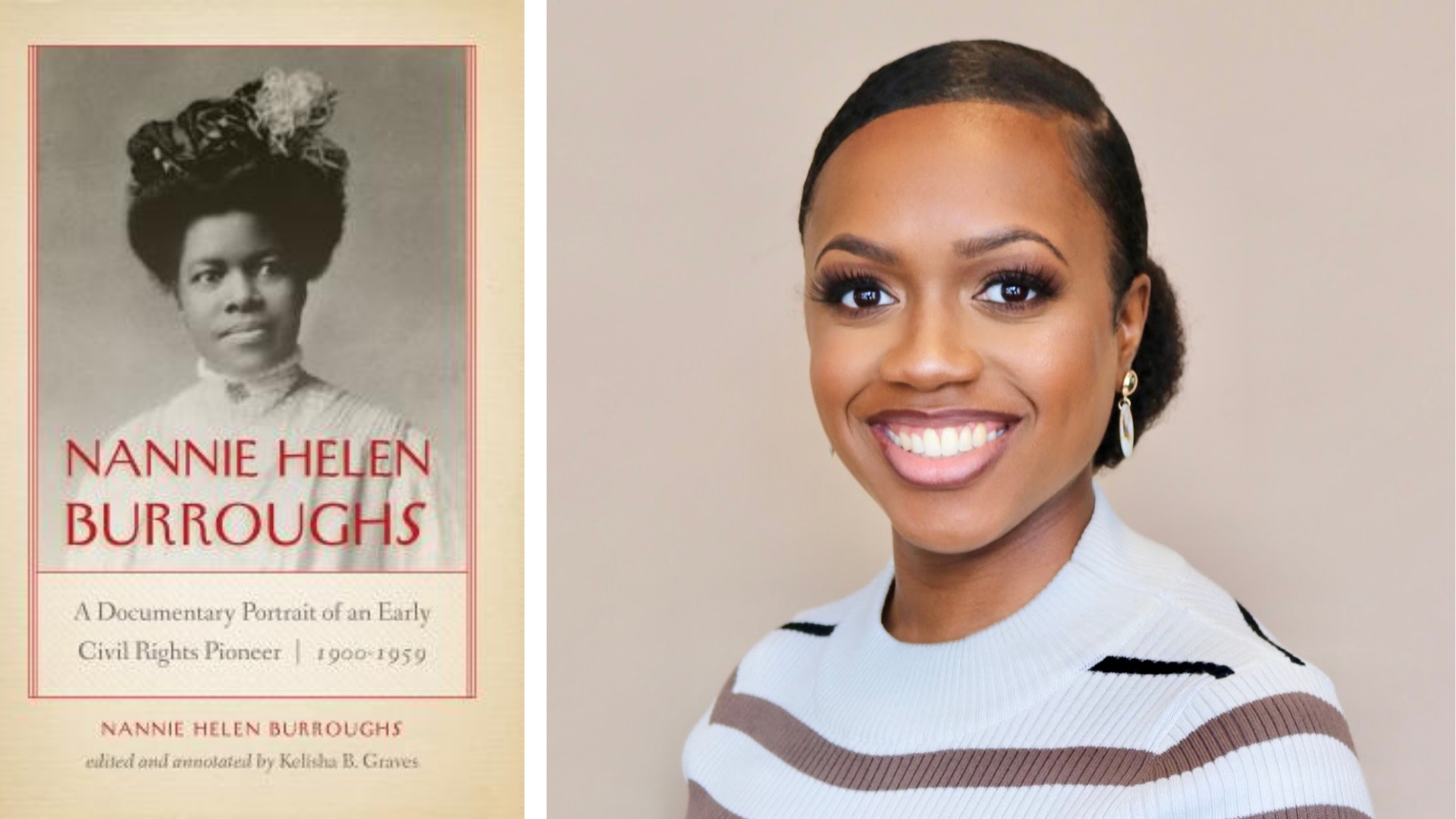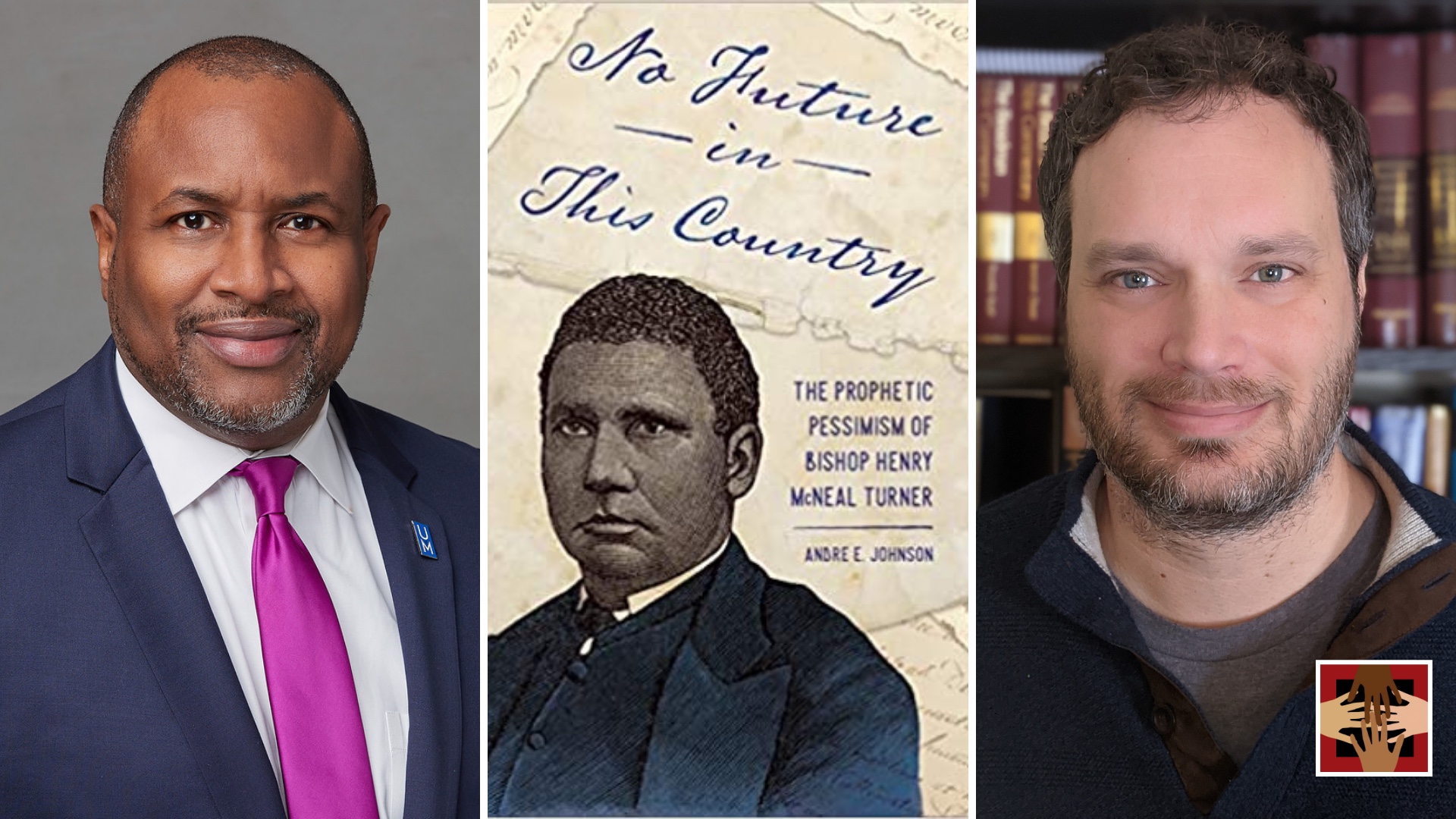2021 Events
Nov. 9
Race in the time of COVID: Hooks Institute Policy Papers Presentation
Thurs. Nov. 9 | 6 pm | Facebook Live, Hooks Institute Facebook Page
On Facebook Live on Nov. 9 at 6 pm the Hooks Institute hosted the 2021 Hooks Institute
Policy Papers Presentations.
Scholars presented their research using national conversations about critical civil
and human rights issues as a starting point to discuss and propose solutions to contemporary
problems. In 2021, the policy papers address the myriad ways the COVID-19 pandemic
has exposed existing injustices in our society.
Authors of the papers and topics were:
- "COVID-19 and Evictions in Memphis" by Andrew Guthrie (UofMemphis City and Regional Planning), Courtnee Melton-Fant (UofMemphis Division of Health Systems Management and Policy) and Katherine Lambert-Pennington (UofMemphis Department of Anthropology)
- "Race and COVID: Illuminating Inequities in Education" by Cardell Orrin (Stand for the Children) and Kelsey Jirikils (Freedom Preparatory Academy)
- "COVID-19 and Work: Employment Disparities Magnified" by Elena Delavega (UofMemphis Department of Social Work) and Gregory M. Blumenthal (GMBS Consulting)
- "COVID-19 Reveals the Power - and Limits - of Collective Will" by Daniel Kiel (UofMemphis Law School)
- "Through a Glass Darkly: Musings on the Harsh Realities of COVID-19 Social Determinants of Health in the Age of
- Pandemic" by Albert Mosley (Methodist Le Bonheur Healthcare)
- "Life After Death: COVID-19’s Impact on the Wealth of African American Families" by Daphene R. McFerren (Hooks Institute)
Oct. 19
Combating the HIV Epidemic in Memphis 
Tues. Oct. 19, 6 pm | Facebook Live, Hooks Institute Facebook Page
Panelists discussed HIV stigma and discrimination in the African American community, living with HIV and ways to reduce the risk of getting HIV and other STIs. The event was live-streamed on the Hooks Institute's Facebook page on Oct. 19 from 6-7 p.m.
The panelists were Juanita Davis (director, CARE4ME Services), Cedric Sturdevant (director, HIV/AIDS Prevention at Community Health-PIER), Eddie Wiley (Shelby County ending HIV epidemic initiative coordinator, TN Department of Health) and DeMarcus Jones (protocol outreach assistant for prevention studies, St. Jude Children's Research Hospital). Hooks Academic Research Fellow Dr. Shemeka Hamlin-Palmer (clinical assistant professor, Department of Healthcare leadership, University of Memphis) moderated.
Oct. 5
Y ou Can't Teach That! Prohibited Concepts in Instruction" in Public Schools created
by Tennessee Law
ou Can't Teach That! Prohibited Concepts in Instruction" in Public Schools created
by Tennessee Law
Tues. Oct. 5, 6 pm | Facebook Live, Hooks Institute Facebook Page
On May 23, 2021, Tennessee passed a law banning 14 concepts in instruction that appear to significantly limit how educators can teach students on issues of race, class, gender disparities and privilege in public school classrooms. How will this law be implemented? How will it impact the quality and scope of teaching? What relationship, if any, does it have to Critical Race Theory. This Facebook Live Event continued the community conversation that began on June 5, 2021, on Facebook Live that addressed “Critical Race Theory: What it is and What It Isn’t.”
Panelists for the event were Courtney Mauldin (Assistant Professor of Teaching & Leadership in the School of Education at Syracuse University), Cardell Orrin (Tennessee Executive Director for Stand for Children), Le’Trice Donaldson (Assistant Professor of African American and U.S. history at the Texas A&M University-Corpus Christi) and Daphene McFerren (Hooks Institute Executive Director). Andre Johnson (UofM Associate Professor, Department of Communications and Film) moderated.
Sept. 14
Exploring the African American Experience Through Art: Art, Adornment and Manifestations of African American Cultural Identity with the Metal Museum
Tues., Sept. 14th, 6pm, Facebook Live, Hooks Institute's Facebook Page
Staff from the Hooks Institute and the Metal Museum discussed two recent exhibitions centering on the work and lives of African American jewelers. Metal Museum staff highlighted some of their favorite artists in the exhibitions and discuss how the Museum included local artists in the exhibition design as well as how the pieces express the culture and social experience of their makers.
“Divine Legacies in Black Jewelry” explores the pluralistic histories of jewelry creation and production in the Black Diaspora of the Americas. This exhibition centers the works and lives of over twenty-five different jewelry artists to present the first survey of the history of Black Diasporic jewelry of its kind.
Tiff Massey is an interdisciplinary artist from Detroit, MI. Her work, inspired by African standards of economic vitality, includes both large-scale and wearable sculptures, music, and performance. Staff will dive into what inspired Massey to create her “Everyday Arsenal” installation, on view at the Metal Museum until September 26th.
Sept. 9
 Exploring the African American Experience Through Art: African American artist Elizabeth
Catlett
Exploring the African American Experience Through Art: African American artist Elizabeth
Catlett
Thursday, Sept. 9th, 6pm | Facebook Live, Hooks Institute's Facebook Page
Brooks Museum Curatorial Fellow Heather Nickels joined the Hooks Institute to look at the recent exhibit, "Persevere and Resist: The Strong Black Women of Elizabeth Catlett." Catlett sought to iconize and inspire oppressed populations in the US and her adopted home of Mexico through her sculptures and lithograph prints.
The Benjamin L. Hooks Institute for Social Change at the University of Memphis and the Memphis Brooks Museum of Art featured the internationally renowned work of African American artist Elizabeth Catlett.
Brooks Museum Curatorial Fellow Heather Nickels examined pieces featured in the recent exhibit, “Persevere and Resist: The Strong Black Women of Elizabeth Catlett.”
Catlett wanted her art to be accessible to all, regardless of education or experience, which, according to her 2021 obituary in the New York Times, "meant balancing abstraction with figuration." Her stylized faces and bodies are proud and stoic, yet curvaceous and soft, designed to "show man's dignity stripped to essence." An educator as well as artist, Ms. Catlett went on to become the first female professor of sculpture and, eventually, head of the sculpture department at the National Autonomous University of Mexico's School of Fine Arts in Mexico City. Catlett states that she "learned how to use your art for the service of people, struggling people, to whom only realism is meaningful."
June 22
Critical Race Theory: What it is and What it isn't
Tuesday, June 22, 6-7 PM | Facebook Live, Hooks Institute's Facebook Page
The Benjamin L. Hooks Institute hosted an online discussion on the importance of Critical Race Theory (CRT) in academic, education and activist studies. The event was live-streamed on the Hooks Institute’s Facebook page June 22 from 6-7 p.m. This event was free and open to the public.
About the Critical Race Theory Discussion
CRT is invaluable in how it helps us understand, research, study and teach how race
functions in the United States and across the globe. However, much of this has come
under attack as opponents of CRT charge that it divides Americans and promotes a distorted
view of American history through a racial and ideological lens. In response to these
attacks on CRT, the panelists addressed those concerns and help unpack what CRT is
and why it has been and continues to be an essential tool in addressing our racist
past and present.
The panelists for the event are distinguished scholars and serve as Hooks Academic Research Fellows. They were as follows:
Kami Anderson
Kami (pronounced kah-MEE) Anderson, PhD is an interculturalist, scholar and language
advocate. Originally from Milwaukee, Wisc., Anderson has always kept a tight grip
on her passion and compassion for others and difference through language. Her primary
focus is family empowerment through language with an emphasis on application and confidence.
Anderson received her PhD in Intercultural Communication from Howard University in
2007. She received a BA in Spanish from Spelman College and a MA in International
Communication and Cultural Anthropology from American University. She has been teaching
in higher education since 2005. She has taught a wide range of courses in higher education
including public speaking, interpersonal communication, intercultural communication,
human communication, media, culture and society, small group communication, international
communication, business communication as well as a faculty-led student travel course:
City as Text.
Wallis C. Baxter III
Wallis C. Baxter III, PhD, is a native of Rocky Mount, N.C., and grew up in Marietta,
Ga. After attending Morehouse College for his BA degree and Duke Divinity School for
his MDiv, Baxter completed his PhD in African American Literature at Howard University.
Baxter currently teaches African American Literature at Gettysburg College. He is
the author of the forthcoming publication “You Must Be Born Again: Phillis Wheatley
as Prophetic Poet” (Lexington Books, 2021). In addition, he is co-editing a two-volume
series of sermons entitled “Preaching During a Pandemic: The Rhetoric of the Black
Preaching Tradition” (Peter Lang, 2022).
Le’Trice Donaldson
Le’Trice Donaldson, PhD is an Assistant Professor of History in the Applied Social
Science Department at the University of Wisconsin-Stout. She earned her PhD in African
American History from the University of Memphis, and her BA and MA from the University
of Tennessee-Knoxville. Her research centers on the lives of African Americans in
the military and how gender and masculinity help (re)shape the narrative of the Black
military experience.
Daniel Kiel
Daniel Kiel is a professor of law at the Cecil C. Humphreys School of Law, where he
joined the faculty in 2008 and teaches constitutional law, education & civil rights
and property law. In addition to his record of publications focusing on disparities
in education, Kiel is the director of “The Memphis 13” (2011), a documentary sharing
the stories of the first graders who desegregated Memphis City Schools in 1961. The
film has been screened at universities, film festivals, museums and schools across
the country and was made possible in part by a research grant from the Hooks Institute
in 2010.
Kiel has been recognized on campus with the University's Martin Luther King, Jr., Human Rights Award (2013) and the Alumni Association's Distinguished Teaching Award (2017) as well as various honors within the law school. He has served on the Hooks Institute's National Book Award committee since 2012 and also contributed a paper to the Institute's 2018 Policy Papers series. Kiel is a native Memphian and a graduate of the University of Texas at Austin and Harvard Law School.
The event will be moderated by Andre E. Johnson
Andre E. Johnson, PhD, is an associate professor of Rhetoric and Media Studies in
the Department of Communication and Film at the University of Memphis. He teaches
classes in African American Public Address, Rhetoric, Race, Religion and Interracial
Communication. Johnson is the author of “The Forgotten Prophet: Bishop Henry McNeal
Turner and the African American Prophetic Tradition” (Lexington Books, 2012), the
co-author (with Amanda Nell Edgar, PhD) of “The Struggle Over Black Lives Matter and
All Lives Matter” (Lexington Books, 2018) and the author of “No Future in this Country:
The Prophetic Pessimism of Bishop Henry McNeal Turner” (University Press of Mississippi,
2020).
May 21
“Ida B. Wells: A Chicago Stories Special” documentary with Interview Featuring Daphene R. McFerren
Fri., May 21, 8 PM | WTTW Chicago and WKNO-TV Memphis
Along with Pulitzer Prize-winning journalist Nikole Hannah-Jones, creator of the Ida B. Wells Society for Investigative Reporting and the landmark 1619 Project, Daphene R. McFerren, executive director of the Hooks Institute, explored the activism of Ida B. Wells in the WTTW Chicago Special- “Ida B. Wells: A Chicago Stories Special.” The documentary, which also features historians and descendants of Ida B. Wells, premiered on WTTW Chicago on May 21 in addition to being shown on WKNO Memphis, periodically, the week of July 16, in honor of the Ida B. Wells celebration unveiling in downtown Memphis.
 April 13
April 13
Systemic Racism and COVID in Memphis
Tuesday, April 13 | 6–7:30PM (Central Time)
The Marcus Orr Center for the Humanities, the Benjamin L. Hooks Institute for Social Change, the Department of Communications, the Department of History and the Community of Researchers (CoRs) Health Spaces and Technology Research Community (HSTRC) partnered to present a Zoom panel.
Panelists:
- Dr. Letoshia Foster | Historian and Nurse Practitioner
- Tami Sawyer | Shelby County Commissioner and Department of Communications MA Student
- Dr. Irma Singarella | Associate Professor, Health Science Librarian at the University Libraries and CoRS 2021 Convener
Moderated by:
- Dr. Beverly Bond and Dr. Beverly Tsacoyianis
Mar. 9
Lecture: Kelisha B. Graves, author of Nannie Helen Burroughs: A Documentary Portrait of an Early Civil Rights Pioneer, 1900-1959
Tues. Mar. 9, 6 PM | Facebook Live, Hooks Institute Facebook Page
A lecture by Kelisha B. Graves, author of Nannie Helen Burroughs: A Documentary Portrait
of an Early Civil Rights Pioneer, 1900-1959 was livestreamed on the Hooks Institute’s
Facebook page (facebook.com/benhooksinstitute/) on Tues. March 9 at 6 pm and was moderated
by Hooks Institute Scholar in Residence Andre E. Johnson. It is free and open to the
public.
lecture by Kelisha B. Graves, author of Nannie Helen Burroughs: A Documentary Portrait
of an Early Civil Rights Pioneer, 1900-1959 was livestreamed on the Hooks Institute’s
Facebook page (facebook.com/benhooksinstitute/) on Tues. March 9 at 6 pm and was moderated
by Hooks Institute Scholar in Residence Andre E. Johnson. It is free and open to the
public.
About Nannie Helen Burroughs: A Documentary Portrait of an Early Civil Rights Pioneer, 1900-1959
Nannie Helen Burroughs (1879–1961) is just one of the many African American intellectuals
whose work has been long excluded from the literary canon. In her time, Burroughs
was a celebrated African American (or, in her era, a "race woman") female activist,
educator, and intellectual. This book represents a landmark contribution to the African
American intellectual historical project by allowing readers to experience Burroughs
in her own words. This anthology of her works written between 1900 and 1959 encapsulates
Burroughs' work as a theologian, philosopher, activist, educator, intellectual, and
evangelist, as well as the myriad of ways that her career resisted definition. Burroughs
rubbed elbows with such African American historical icons as W. E. B. DuBois, Booker
T. Washington, Anna Julia Cooper, Mary Church Terrell, and Mary McLeod Bethune. These
interactions represent much of the existing, easily available literature on Burroughs'
life. This book aims to spark a conversation surrounding Burroughs' life and work
by making available her own tracts on God, sin, the intersections of church and society,
black womanhood, education, and social justice. Moreover, the book is an important
piece of the growing movement toward excavating African American intellectual and
philosophical thought and reformulating the literary canon to bring a diverse array
of voices to the table.
About Kelisha B. Graves
Kelisha B. Graves is a higher education educator, author, and speaker. She is completing
a doctorate in educational leadership with a concentration in higher education. She
is an interdisciplinary and global scholar whose research and teaching resides at
the nexus of education and the global Africana experience. Specifically, her areas
of research interests include: educational leadership and administration, teaching
and learning, culturally-responsive pedagogy and assessment, curriculum planning and
development, educational technology, socio-cultural knowledges, critical race theory,
Africana philosophy, and African American intellectual history. She also maintains
interests in global education policy and international development with a specific
focus on Africa.
About Andre E. Johnson
Andre E. Johnson is a Scholar in Residence at the Benjamin L. Hooks Institute for
Social Change and an associate professor of Communication at the UofM.
Feb. 24
Inaugural Hooks Social Justice Series: No Future in This Country by Andre E. Johnson
 The Benjamin L. Hooks Institute for Social Change hosted the Inaugural Hooks Social
Justice Series event where Hooks Scholar in Residence Andre E. Johnson will give a
lecture on his book, No Future in This Country: The Prophetic Pessimism of Bishop Henry McNeal Turner. The event was moderated by UofM Communication and Film graduate student Tom Fuerst
and took place February 24 at 1pm CST on the Hooks Institute’s Facebook Page: https://www.facebook.com/benhooksinstitute/ and was free and open to the public.
The Benjamin L. Hooks Institute for Social Change hosted the Inaugural Hooks Social
Justice Series event where Hooks Scholar in Residence Andre E. Johnson will give a
lecture on his book, No Future in This Country: The Prophetic Pessimism of Bishop Henry McNeal Turner. The event was moderated by UofM Communication and Film graduate student Tom Fuerst
and took place February 24 at 1pm CST on the Hooks Institute’s Facebook Page: https://www.facebook.com/benhooksinstitute/ and was free and open to the public.
About No Future in This Country
No Future in This Country: The Prophetic Pessimism of Bishop Henry McNeal Turner (University Press of Mississippi, 2020) draws on the copious amount of material from
Bishop Henry McNeal Turner’s speeches, editorial, and open and private letters to
tell the story of how Turner provided rhetorical leadership during a period in which
America defaulted on many of the rights and privileges gained for African Americans
during Reconstruction. Unlike many of his contemporaries during this period, Turner
did not opt to proclaim an optimistic view of race relations. Instead, Johnson argues
that Turner adopted a prophetic persona of a pessimistic prophet who not only spoke
truth to power but, in so doing, also challenged and pushed African Americans to believe
in themselves.
At this time in his life, Turner had no confidence in American institutions or that
the American people would live up to the promises outlined in their sacred documents.
While he argued that emigration was the only way for African Americans to retain their
“personhood” status, he would also believe that African Americans would never emigrate
to Africa. He argued that many African Americans were so oppressed and so stripped
of agency because continued negative assessments of their personhood surrounded them
that belief in emigration was not possible. Turner’s position limited his rhetorical
options, but by adopting a pessimistic prophetic voice that bore witness to the atrocities
African Americans faced, Turner found space for his oratory, which reflected itself
within the lament tradition of prophecy.
About Andre E. Johnson (Left in Photo)
Andre E. Johnson is an Associate Professor of Communication and the Scholar in Residence
at the Benjamin L. Hooks Institute for Social Change at the University of Memphis.
About Tom Fuerst (Right in Photo)
Thomas M. Fuerst is a graduate student in the Department of Communication & Film at
the University of Memphis studying religious and prophetic rhetoric. He is currently
examining the role of prophetic rhetoric in the call narratives of African American
preachers in the 19th century.
Feb. 22
“The Fight to Vote: Black Voter Suppression in Tennessee” Documentary Featuring Interview with Daphene R. McFerren
Mon., Feb. 22, 8 PM | Nashville Public Television
Daphene R. McFerren, executive director, Hooks Institute, spoke about the history
of voter suppression in Fayette County and voter suppression today in the documentary
“The Fight to Vote: Black Voter Suppression in Tennessee,” by Nashville Public Television
(NPT). This documentary features a host of activists and historians and was broadcast
initially on NPT on Feb. 22, 2021, at 8 PM.
Stay tuned for news about upcoming Hooks events!
